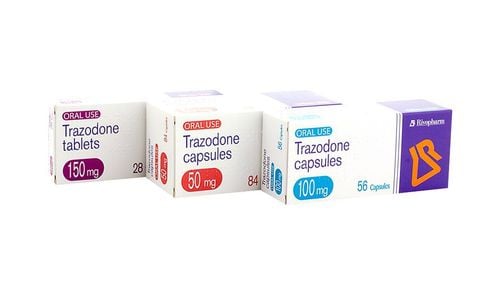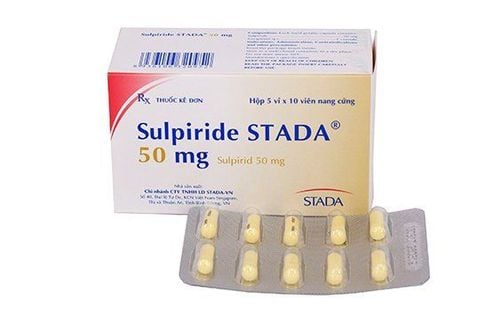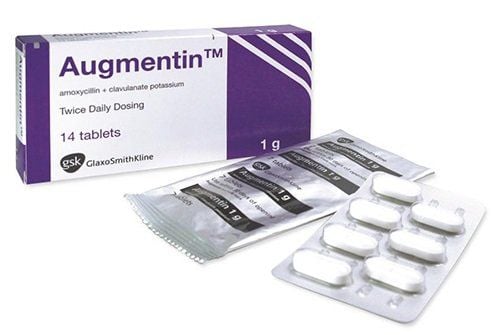Most patients take medication with the hope that it will improve their symptoms. However, sometimes medication can make patients feel worse, and nausea when taking medication is one of the most common side effects reported in clinical practice.
1. Vomiting when Taking Medication
While not painful, the feeling of nausea and vomiting can cause discomfort for patients. This unpleasant sensation is often located in the back of the throat, chest, or upper abdomen. Nausea and vomiting can also lead to a loss of appetite due to the body undergoing the following sequence:
- The lower esophageal sphincter (the ring of muscle that connects the esophagus to the stomach) relaxes.
- The abdominal muscles and diaphragm contract.
- The epiglottis closes.
- The lower part of the stomach increases contractions.
- During vomiting, the contents of the stomach are forced up through the esophagus and out of the mouth.
2. Medications That Can Cause Nausea
The side effects of nausea and vomiting when taking medication can occur when patients use drug groups such as:
- Antibiotics like erythromycin (Erythrocin)
- Aspirin
- Non-steroidal anti-inflammatory drugs drugs (NSAIDs) such as ibuprofen and naproxen
- Some types of blood pressure medications like the calcium channel blocker nifedipine
- Antidepressants
- Chemotherapy drugs
- Medications for Parkinson's disease

3. Causes of Nausea When Taking Medication
What is the mechanism behind the side effects of nausea when taking medication? Common causes of nausea when taking medication include:
- The primary reason for nausea when taking medication is the way the drug works. Pain relievers, for example, can affect the brain's vomiting center.
- Some NSAIDs can irritate the stomach lining and lead to nausea and vomiting.
- Certain medications can cause nausea due to their absorption in the stomach. As we age, drug absorption may decrease, or some drugs may remain in the gastrointestinal tract for a long time, causing irritation.
- Drug interactions can also be a factor. The risk of vomiting increases when taking multiple medications at once.
- Inactive ingredients or excipients in
medications can sometimes cause nausea.
4. What to Do When Experiencing Frequent Nausea from Medication?
Inform your doctor about the nausea and vomiting you experience when taking medication, especially if it significantly impacts your daily activities, making it difficult to eat, causing weight loss, or leading to dehydration. While nausea from medication doesn't always require treatment, you may benefit from medical advice. Some measures to help reduce this side effect include:
- In many cases, nausea and vomiting can be controlled by taking medication with a light snack (such as crackers, toast, or yogurt). Taking medication with a light meal or before bed can help reduce nausea.
- Consume soothing beverages like ginger ale or chamomile tea.
- Limit consumption of carbonated drinks, coffee, tea, and caffeinated beverages.
- Stay hydrated by drinking plenty of fluids to prevent dehydration, especially if you're vomiting frequently.
- Divide your main meals into smaller, more frequent meals to reduce the Overwork on your stomach.
- Eat digestible foods, low in salt and fat, such as crackers or bread, rice, chicken soup, and bananas.
- Avoid lying down immediately after taking medication and take medication at night before bed to prevent potential nausea.
- Limit spicy foods and fried foods, as they take longer to digest and can increase the risk of nausea.

Additionally, when patients experience frequent nausea and vomiting from medication, they can use several over-the-counter medications to help reduce discomfort, including:
- Liquid or chewable antacids, bismuth, glucose, fructose, and phosphoric acid solutions (Emetrol). These medications help heal the lining of the stomach and neutralize Gastric acid.
- Dimenhydrinate or meclizine hydrochloride can treat or prevent motion sickness and help block the receptors in the brain that cause nausea and vomiting.
If nausea from medication persists, your doctor may prescribe medications to reduce vomiting. However, most anti-nausea medications can cause drowsiness.
For pregnant women or those who suspect they might be pregnant, a doctor should evaluate their condition before using any medication, including over-the-counter drugs.
If the above measures do not reduce the nausea, your doctor may prescribe a medication to reduce the intensity or frequency of nausea or switch you to a different medication.
There are many factors that can cause nausea when taking medication. However, to determine the specific cause and recommend appropriate treatment, a doctor needs to assess your current health condition and the medications you are taking.
Vinmec International General Hospital is a medical facility that provides comprehensive to a wide range of patients. The hospital has received healthcare services and extensive training both domestically and internationally. Along with modern facilities, a polite and civilized examination environment, and cleanliness, Vinmec provides a comfortable experience for patients.
To arrange an appointment, please call … or make your reservation directly HERE. You may also download the MyVinmec app to schedule appointments faster and manage your reservations more conveniently.













